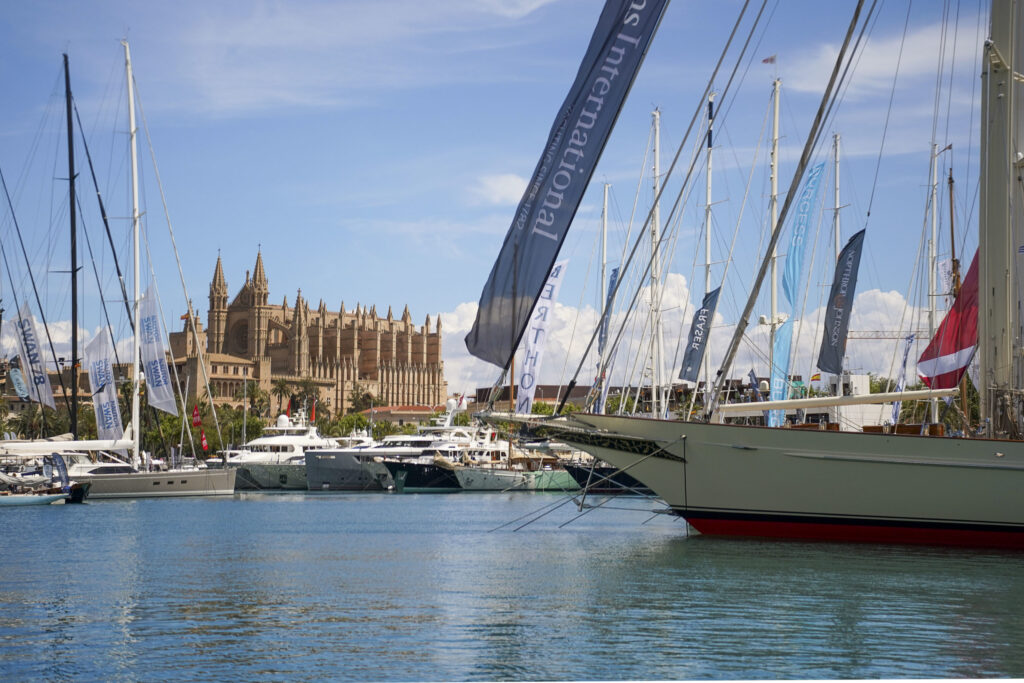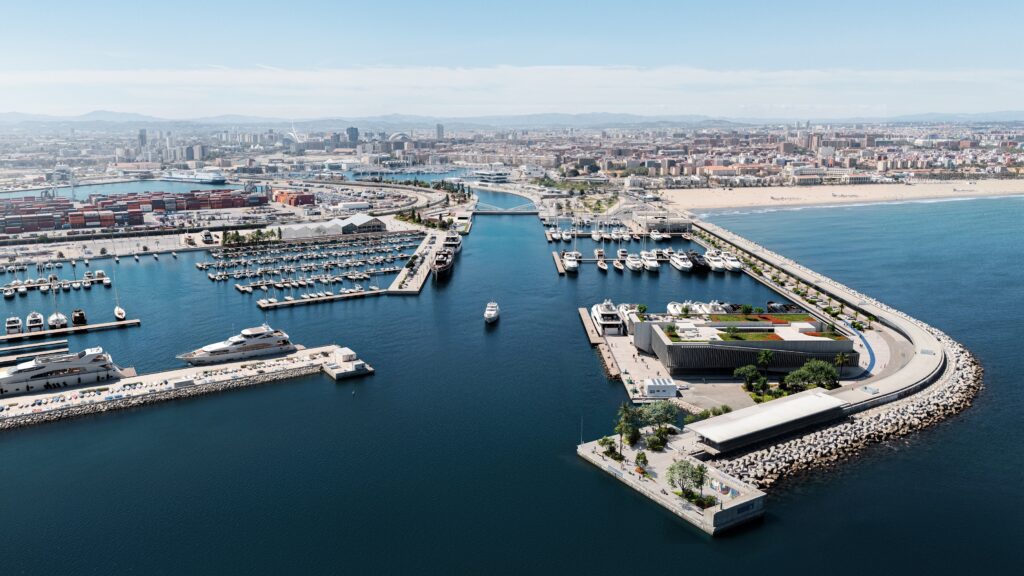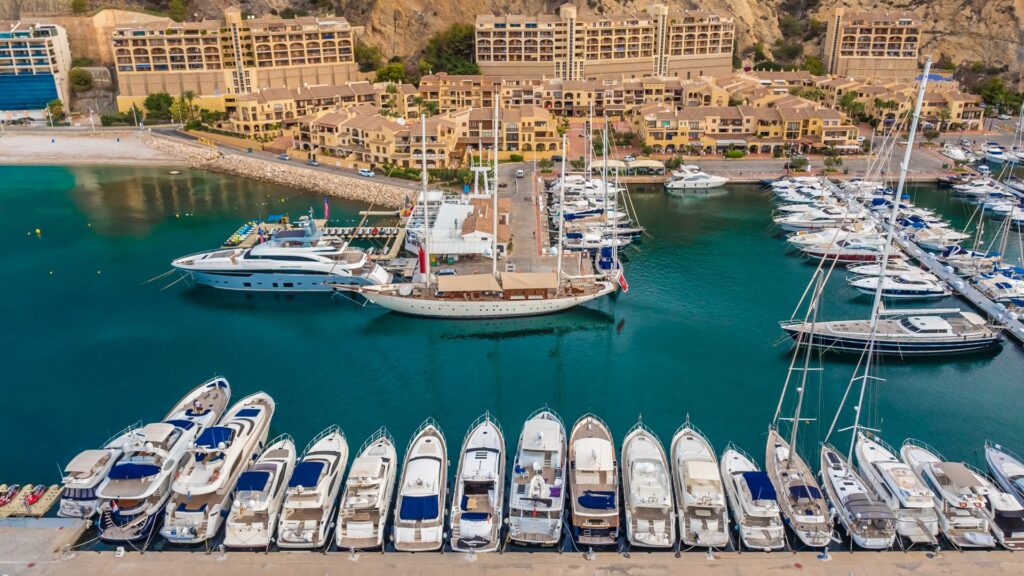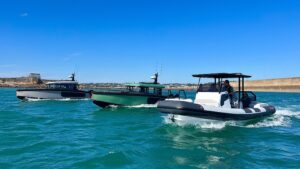Market report: Spanish marine market paints a mixed picture

Jordi Carrasco, director general of ANEN – National Association of Nautical Companies, distills the Spanish marine market and looks ahead to growth.
The national nautical market has been stabilising since 2023, following the growth experienced during the covid pandemic and the following year, 2022.
Currently the data for recreational boat registrations in Spain is around 2019 figures, and with more pronounced descents in certain length segments; particularly affecting smaller boats up to 6 metres and the markets for jet skis and folding inflatable boats. Consumer confidence is yet to fully return with new boat markets, construction and chartering still feeling the pinch.
In the case of the charter segment, competition from other charter destinations along with increased recreational options and general economic uncertainty has negatively impacted the Spanish sector.
Marinas, refit and repair grows in Spain
Marinas, refit and repair sectors, maintenance companies and marine equipment suppliers are faring much better. Thanks to its strategic geographical location and the high quality services available, Spain is a key destination for boat repair and maintenance and this sector is performing positively. Consolidated Spanish shipyards enjoy international recognition, and we are witnessing the emergence of new projects that contribute to diversifying and strengthening our offering. This positions Spain as a benchmark in the Mediterranean for the construction, maintenance and refit of vessels.
While Spain has a solid network of nautical sports facilities we face the challenge of increasing their capacity by redesigning docks, modernising infrastructures and optimising the management of moorings. Spain has had years of uncertainty for many reasons. Everything is happening faster and more globally, and companies are learning to grow within this uncertainty. They are doing so with balanced balance sheets and reasonable debt ratios. Plus, companies are offering innovative design and technology, complementary services, and they are adopting sustainable practices and reinforcing strategies to highlight the quality and benefits of their business.
Sail industry still depleted
Since 2023 and so far this year, sail boat registrations have fallen below motor boat registrations, by an average of -12 per cent. However, as a trend, the hobby of sailing in Spain, especially in the north of Spain, continues to grow in popularity.
Certain international boat shows such as Cannes Yachting Festival and boot Düsseldorf continue to be a benchmark for the presentation of new products for brands and a showcase for enthusiasts. In the case of more local shows, they are facing enormous competition as a sales platform, with more personalised events that brands organise for their clients and potential clients.
Digitisation is also influencing the importance of boat shows. New digital tools can help forge a closer relationship between clients and brands, with much lower costs than those involved in participating in a boat show.
Spanish marine market is mixed
There are several key trends in the current Spanish nautical market. A trend towards larger boats and customisation is apparent; customers are increasingly looking for boats that can be adapted to their specific needs and tastes, with high quality finishes and increased comfort. ANEN reports that sales of new and used boats were down by 20 per cent in the first six months of 2024 to 3,047 units. But sales of large boats over 16m were up by 21 per cent.
Sales of boats under 6m, including jet skis, saw a 23.7 per cent year-on-year drop to just over 2,000 units sold by around October 2024.
Interest in sustainability is gradually growing, with consumers looking for energy efficiency, the use of environmentally friendly materials and information on alternative propulsion systems.
Despite the recent slowdown in the boat hire sector, many people continue to see chartering as an excellent way to enjoy the sea, and the segment is expected to grow in the future.
In terms of logistics, the Spanish marine market is wary of the problems that can arise with maritime transport and shipping. Freight delays had a significant impact in recent years, complicating and making logistics more expensive, resulting in repercussions both in the construction of boats, distribution, and in the final price of the product.
We foresee that in 2025, the market figures will be maintained in similar terms to those of this year.
Canary Island uplift for marine industry
Melanie Symes, Global Marine Business Advisors’ representative for Spain, says that regarding the Canary Islands, arrival numbers show no sign of dropping.
She muses that in the past, the Canaries – one of Spain’s most popular tourist destinations – have been traditionally better known as a stop-off on the way to the Caribbean. But in addition to a packed autumn season, marinas are reporting that boats are continuing to extend their stays on the islands in recent years, reducing annual seasonality.
The marina infrastructure in the Canary Islands is also noteworthy with development potential.
Symes says: “Some of the first marinas to be established in Gran Canaria and Lanzarote are already contending with concession renewals, but an updated Ley de Puertos and strong support from the local authorities is helping to ease this process. This is permitting a long-awaited investment in refurbishments, which will help optimise berthing availability, modernise facilities and improve services.”
Symes continues: “Furthermore, Lanzarote, a consolidated yacht racing destination and preparation point for many transatlantic rallies and races, is continuing to generate excitement as an Olympic training destination, due to optimal sailing conditions and flight accessibility.”
José Juan Calero, managing director of Calero Marinas, the largest private marina group in the islands, is on the cusp of starting to welcome visitors to the company’s fourth marina project, Marina Jandía, in the south of Fuerteventura.
Calero comments: “The region’s political and meteorological stability, excellent sailing conditions and facilities for international boaters award us some fantastic advantages. The Canary Islands have a tremendous potential in terms of infrastructure development for local and visiting boaters and we are working hard to enhance the appeal of the Canary Islands as a premier boating destination.”
Overcoming challenges
The Spanish marine market has enormous potential for growth and development. The sector has attracted new consumers in recent years and it is hoped their desire to enjoy life afloat will continue.
In times of economic or market uncertainty, industry associations are more important than ever. ANEN is working with government administrations to help remove obstacles and promote growth. Collaboration and mutual support within the sector remains strong.
ANEN will continue to work closely with all sub-sectors to navigate these times and promote sustainable and prosperous development of the sector.
Jordi Carrasco is director general of ANEN – National Association of Nautical Companies.












